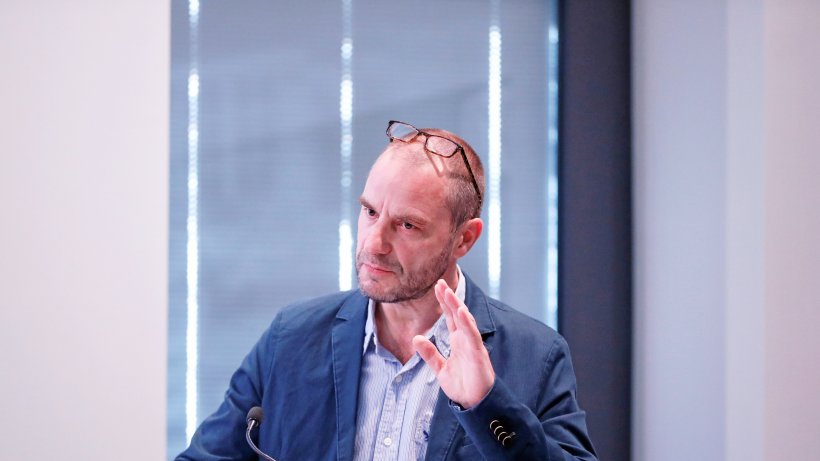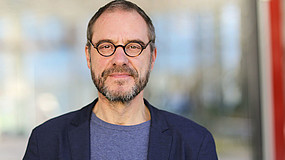East Germans are supposedly coping better with the crisis because of their experience. Raj Kollmorgen sees it differently. (Thüringer Allgemeine, 08.04.2020)

I know that from the GDR, I hear from people trying to describe the current supply situation. In the Tagesspiegel of March 18, 2020, I read: "East Germans' experiences of reunification help in the crisis". Yana Milev, a cultural sociologist, reports the thesis that the "social transformation between 1990 and 1994 ... was similar to the current situation". A "strategy of deception and camouflage" can be identified then as now as a "central government strategy" (blog "The media legacy of the GDR").
One rubs one's eyes. Where and why these comparisons? What, one wonders, do the coronavirus pandemic and its social challenges have to do with the GDR, the transformation experiences of East Germans or the reunification policy after 1990? I fear much less than the protagonists of these interpretations would like. At the same time, the theses cited have a great deal, indeed an uncanny amount, to do with the upheaval of 1989 and the history of unification. In order to make this obvious paradox comprehensible, it is worth taking a closer look at the two strands of assertion and interpretation mentioned. The first strand assumes a parallelism of experience between everyday life in the GDR and the living conditions caused by the pandemic. "No fruit and vegetables on the shelves, long queues at government offices and stores, no freedom to travel - welcome to the GDR! What many people experienced as deprivation for the first time during the coronavirus crisis was everyday life for millions of people." (Robert Ide in the Tagesspiegel of March 18, 2020).
Judith Schalansky, a writer who was born in the GDR and whom I hold in high esteem, described the transfer of experience in a very similar way a few days ago: "It is certainly because I was born in the GDR that I am just as familiar with empty supermarket shelves, rationed food, long queues and closed borders." (Süddeutsche Zeitung, March 31, 2020).
These statements are doubly disturbing. On the one hand, Robert Ide was only 14 in the year of the peaceful revolution and Judith Schalansky was just nine years old, so for both of them it is not good to talk about being "familiar" with the state-socialist planned and scarcity economy. They provide immediate proof of this. For in the GDR of the 1980s, there was neither "no fruit and vegetables on the shelves" nor (as a general phenomenon) "rationed food". Ide's and Schalansky's descriptions have little to do with their own experience and recognition of reality. Rather, they reveal the power of the prevailing discourse of memory about the late GDR. A discourse that stylizes the state-socialist planned economy as a completely failed alternative to the social market economy, including the distorted image of a comprehensive lack of consumption on the verge of systematic undersupply or even malnutrition. Hardly less disturbing is the assumption that the current pandemic situation can be meaningfully compared with this image of consumption in the GDR and thus understood. Not only are there obviously not just a few stores with a small range of goods today, but many full but closed stores. Those stores that are being kept open - apart from a handful of goods - do not have any restrictions on their range. I don't even want to talk about the flourishing online trade. It seems grandiose to me, or more correctly: consumeristically misguided, to associate the current food supply situation with any serious shortage or substantial renunciation.anyone who wants to experience such a situation should please travel to Venezuela, Zambia or Cuba as soon as it is allowed again and look around the stores there.
The second line of interpretation and assertion is based on the East Germans' experiences of upheaval and transformation and initially attests that they have an advantage in dealing with the pandemic. According to Saxony-Anhalt's Minister President Reiner Haselhoff in the Welt newspaper on March 30, older East Germans are "storm-tested when it comes to exceptional situations" and more able to improvise than West Germans. East Germans have the "experience that you can survive tough phases. We have experienced many highs and lows here. And overcome many crises". So there. And the West Germans have experienced nothing but sunshine since 1949, bathed in prosperity and known neither political crises nor hard economic structural change with mass unemployment and impoverishment processes.
If these judgments were not based on socially generated distortions of perception and deep-seated deficits in recognition of East Germans, one would have to laugh out loud. Certainly, after 1989/90, far more people in the East experienced - and in many cases suffered - a more rapid and radical break in their system and lifeworlds than was the case in the West, even in the well-known problem regions (such as the Ruhr area). Nevertheless, broad sections of the population in the West also have substantial experience of crisis and change, especially as the old Federal Republic was a more open, pluralistic and generally more mobile society that demanded a great deal of self-responsibility from its individuals as well as civil and solidary self-organization. The conviction expressed by Haselhoff and Ide that it was the East Germans rather than the West Germans who were able to overcome the coronavirus crisis, not only because of their experience of upheaval, but also because of their "art of improvisation", their "prudence and solidarity" and their "optimism", therefore remains factually unfounded and simply wrong in this global and exclusive sense.
But where does this strong thesis come from and why? The emphasis on East German experiences of crisis and rupture, as well as the resulting advantageous competencies for action, explicitly responds to the prevailing discourse not only of a general devaluation of the GDR, but also of East Germans and East Germany after 1989/90. At that time, after "accession", they were the ignorant, poor in experience, incapable and in need of help, who should not constantly "whine" about their insecurities and life breaks in the face of massive help from the West. These disregards and slights have not been forgotten.
Now, in a new global crisis, the relationship can seemingly be reversed. We, the East Germans, are not only the ones who have experienced shortages and isolation, but also the ones who have experienced crises and are capable of transformation. Look at us and learn how to master a deep crisis. It is therefore an attempt at a counter-discourse, a reversal of argumentation and power, although similar efforts have also been observed in previous crises.
In principle, such attempts to change discursive and therefore also political power relations are not only understandable, but also legitimate. Those who constantly perceive disregard can and should defend themselves.
However, it becomes problematic when the arguments of the old discourse are simply turned on their head, so that the East Germans are no longer the weak ones, but rather those who have experienced transformation, are level-headed, capable and show solidarity - even if this is no more true now than the attribution of incompetence, weakness and whining to all East Germans was before. This does not put an end to German-German prejudices and inequalities, but further reinforces them.
What is also problematic about this counter-discourse, however, is that it tends to conjure up social crises and upheavals or to diagnose all structural dynamics as such because, according to this line of argument, the East Germans are in their element and at an advantage here. As understandable as this tendency may be, it is dangerous - because it distorts perceptions - and it tends towards populism, which loves crises and "exceptional situations".
However, a surprising paradox can also be observed here. For as much as the counter-discourse demands that crises and transformations be sought and found, as they are the fire in which the East Germans are forged into the new victors, many East Germans also fear further radical upheavals. For it was the crises and upheavals of the last 30 years that - in their perception - repeatedly left them as losers. This applies to the labour market crisis of the late 1990s as well as the financial market crisis of 2008/09 and the migration crisis of 2015/16.
Yana Milev shows just how far this paradoxical search and find can go in the coronavirus context with her thesis of a "lawless space" and a "central government strategy" of "camouflage and deception" in the early unification policy (1990-1994), which is now being repeated in a crisis-like manner in the pandemic. Here, the attempt at a counter-discursive critique of the unification process administered from above and outside, i.e. by West German elites, becomes a conspiracy-theory assertion in a flat and unfounded analogy. However, anyone who reinterprets and denounces the intensive government and political-public debates on dealing with the corona epidemic in this way must have lost their way in the maelstrom of East German disregard and awareness of upheaval.
Cicero's saying "historia magistra vitae est" (history is the teacher of life) only applies in the full sense - as it always has - on the condition of critical self-reflection in one's own cognitive process.
